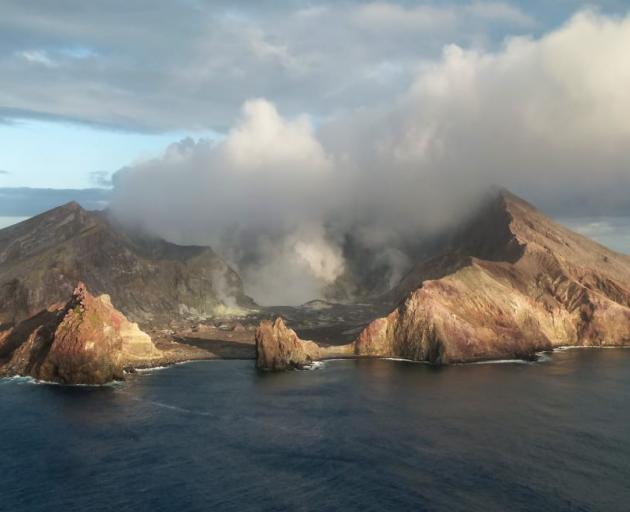
Andrew, Peter and James Buttle are charged as directors of Whakaari Management Limited (WML) for health and safety failings in the lead-up to the volcanic eruption that killed 22 people in 2019.
The brothers have already failed to have the charges laid against them dismissed or stayed.
Earlier this month, the trio sought a judicial review of Judge Evangelos Thomas' decision to continue the trial, but Justice Jane Anderson at the High Court in Auckland dismissed the application.
The Buttles' lawyer, James Cairney, made another submission to Judge Thomas in the Auckland District Court on Thursday.
Cairney argued there were two "glaring" faults in WorkSafe's case, the first being that WorkSafe had treated the directors as one group in the trial and its investigation by repeatedly referring to them as 'The Buttles'.
"The allegation boils down to this: WorkSafe says Whakaari Management Limited breached a duty. Whakaari Management Limited was controlled by the Buttles, and if we use James as an example, James is a Buttle therefore James is liable. It really is that crude," Cairney said.
Cairney said the case was also flawed because WorkSafe had sought to treat any breach by WML as a breach by its directors as if it was a one-director company.
He then outlined his argument for each of his clients separately, saying there was no evidence that met the requirements of Section 44.2 of the Health and Safety at Work Act.
That section says an officer of a PCBU (person carrying out business or undertaking) must exercise the care, diligence, and skill that a reasonable officer would exercise in the same circumstances, taking into account (without limitation) the nature of the business or undertaking; and the position of the officer and the nature of the responsibilities undertaken by the officer.
Cairney told the court there was almost a complete lack of evidence of Andrew, James and Peter's circumstances, roles and responsibilities.
He said that undermined the court's ability to assess what a reasonable officer would do and weakened the ability to properly and fairly determine what a reasonable officer would do in these circumstances.
"That should be the end of the matter in respect to the charge against James and it should be dismissed on that basis.
"WorkSafe has closed its case. I say it has offered either no, or inadequate, evidence of key aspects material to any proper decision on guilt and if we proceeded now to a determination, any conviction that followed would be unsafe and unfair."
Cairney said WorkSafe needed to have gathered all the information before bringing its case to court but there was no thorough investigation.
"The lack of requests [to Andrew, James and Peter] from WorkSafe for information was in stark contrast with the significant information gathering that occurred in respect to White Island Tours."
Earlier in the trial the court heard that by 21 October, 2020, WorkSafe said there was no evidence or information upon which it could charge James, Andrew or Peter Buttle.
WorkSafe inspector Casey Broad gave evidence that between 21 October 2020 and the close of the investigation and filing of charges on 30 November 2020, no investigation steps were taken.
"There was nothing that could be called an investigation at all," Cairney said. "WorkSafe seems to have wanted James Buttle to have investigated himself.
"I'm not aware of any evidence, certainly not before this court in relation to James Buttle ever being told that he was expressly under investigation for a breach of due diligence."
WorkSafe opposed the submission to dismiss the charges and will present its argument tomorrow.
By Emma Stanford












